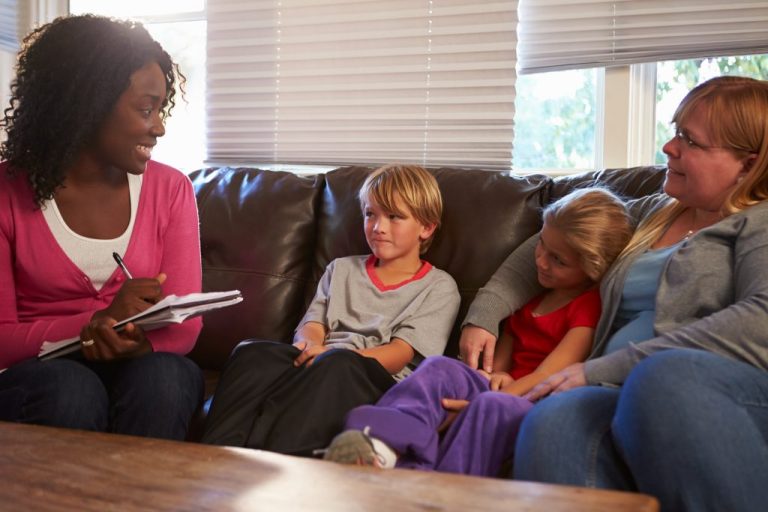The government must place a stronger focus on addressing school nurse and health visitor shortages to tackle the decline in children’s health and wellbeing, according to a new briefing paper.
The King’s Fund last week set out 10 actions that it thinks ministers should take to improve child health in England, which included recommendations on improving nursing provision.
“The government has a pivotal role to play in ensuring that every child has a healthier childhood”
Jessica Holden
The healthcare think tank warned that children’s physical and mental health outcomes were “on a downward spiral” across the country.
The briefing paper, published on 10 April, noted that demand on the children’s health and care workforce was continuing to increase “at an unprecedented rate”.
This demand, coupled with shortages across midwifery, school nursing and health visiting, meant a record number of children were waiting to access health services, it said.
It warned that the growing gap between demand and capacity had led to waiting lists for children’s health services rising at twice the rate of adult waiting lists.
“Such long waits for care are especially concerning because in children intervention is often needed by a certain age or developmental stage,” the paper explained.
As such, the King’s Fund set out 10 actions the government should undertake to improve children’s health provision across England.
One of the recommendations was for ministers to “place a stronger focus on addressing the shortages in the child health workforce”, including school nurses, health visitors, midwives and consultant paediatricians.
Similarly, it called for improvements to staff retention across the nursing, allied health professional and medical specialist children’s workforce to be included in the new NHS Long Term Workforce Plan.
The updated workforce plan is due to be published in the summer.
Meanwhile, the briefing paper called for the government to allocate “a greater and more equitable share of health service funding to children” in the next spending review.
It further urged for there to be “clear expectations” that providers must improve performance for children’s community and mental health services, to ensure no child has to wait longer than the 18-week target to receive care and treatment.
The King’s Fund also called for every integrated care system strategy to include “specific focus on children and young people’s health, wellbeing and health and care services” including clear pathways to ensure that local systems are sufficiently prioritising children.
Another recommendation was for the government to implement a strategy to drive progress in reaching World Health Organization targets for childhood vaccination uptake rates.
The target is for at least 95% of children to be vaccinated against vaccine-preventable diseases, but this is not being met in England.
Other recommendations set out in the paper included working to improve accessibility of online health and nutrition information for families, parents and carers, as well as calls to auto-enrol all eligible children for free school meals.
Jessica Holden, policy adviser at the King’s Fund and author of the paper, said: “Children’s health has been heading in the wrong direction for too long; the need for change is urgent and requires a multifaceted, multi-system approach.
“The government has a pivotal role to play in ensuring that every child has a healthier childhood.
“Through our refreshed workforce plan we will ensure we have the staff we need”
Government spokesperson
“Adopting the recommendations outlined in this briefing would go a long way to turning the tide and creating a healthier generation of children that is able to reach its full potential.”
Responding to the briefing paper, Alison Morton, chief executive of the Institute of Health Visiting, said: “The highly respected King’s Fund has added their weight of support, calling for more health visitors in their briefing – and we are indebted to them for their advocacy and support for our profession.”

Alison Morton
She noted that the briefing paper had come shortly after the Centre for Mental Health had called on the government to train and employ more health visitors and school nurses.
Ms Morton added that there was a “a long list” of other organisations that were all in agreement that “we need more health visitors to improve child health”.
“We hope that the government will heed the collective wisdom and advice of so many and honour its manifesto commitment to strengthen health visiting and turn this into reality,” she added.
It comes as, in its election manifesto, the Labour Party committed to “raise the healthiest generation of children in our history”.
The party had also previously published a Child Health Action Plan, which promised to improve the health of children through measures including training more health visitors and boosting their role in vaccinations.
A Department for Health and Social Care spokesperson said: “NHS staff have been overworked for years, leading to a burnt out and demoralised workforce, as a result too many children are not receiving the healthcare they need.
“As part of our Plan for Change, this government is rebuilding the health system and creating the healthiest generation of children in our history by shifting the focus from treatment to prevention.
“Health visitors and school nurses will play a critical role in this, and through our refreshed workforce plan we will ensure we have the staff we need so that children and their families are cared for by the right professional, when and where they need it.”
More on children’s nursing

